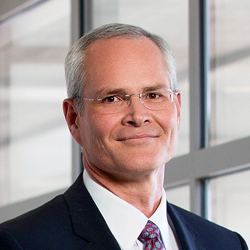selected item
Risk management and safety
Protecting people and the environment
At ExxonMobil, we are committed to safeguarding the security and health of our employees, those involved with our operations, our customers and the public. We believe the answer lies in three uncompromising pursuits: exceptional technology, rigorous standards and an unwavering commitment to best-practice safety procedures.
Like all industrial processes, energy development involves risk. Effective emergency preparedness depends on competent response teams and rigorous systems. For instance, we closely monitor storm activity that may impact the areas in which we operate.
Since the inception of OIMS, industry-leading lost-time incident rates have been significantly reduced. Risks to the environment have been reduced, with a remarkable decline in marine spills and continuing reductions in emissions.
Nobody Gets Hurt
The cornerstone of our commitment to safety is The Operations Integrity Management System (OIMS). From the drilling of a well to the delivery of petroleum products, these expectations provide the foundation for managing risk and achieving excellence in performance in each of our business lines.
Biomedical Sciences: Protecting people and the planet
All articles about risk management and safety
As we prepare for severe weather that may impact our Gulf of Mexico operations, our primary focus is the safety of our workforce and communities in the affected areas. We continue to meet customer commitments.
For the latest developments on Beryl, please visit the National Hurricane Center website.
Real-life training to keep you safe
Key takeaways:
- We sponsor hands-on emergency pipeline safety training for local first responders.
- We’ve adapted the program to include training for carbon dioxide (CO2) pipeline emergencies.
- We offer the training to first responders across our pipeline and operations footprint – helping to keep communities safe.
3 min read
•

